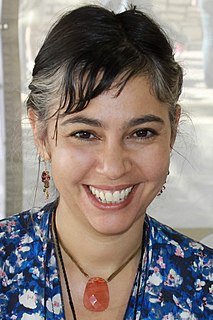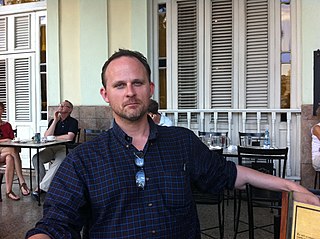A Quote by Pico Iyer
The less conscious one is of being a writer, the better the writing.
Related Quotes
Being pregnant taught me how to be a better writer. It was a lesson in negative capability and surrendering to necessity. Suddenly, my body instinctually yielded to the needs of this growing being, and I had no choice but to embrace what was happening and all that lay ahead, even if I was afraid and uncertain. So, while being a parent has made writing more challenging, it has also made being a writer more certain. There's no room to procrastinate; there is to time for fear.
But the novels of women were not affected only by the necessarily narrow range of the writer's experience. They showed, at least in the nineteenth century, another characteristic which may be traced to the writer's sex. In Middlemarch and in Jane Eyre we are conscious not merely of the writer's character, as we are conscious of the character of Charles Dickens, but we are conscious of a woman's presence of someone resenting the treatment of her sex and pleading for its rights.
I haven’t had trouble with writer’s block. I think it’s because my process involves writing very badly. My first drafts are filled with lurching, clichéd writing, outright flailing around. Writing that doesn’t have a good voice or any voice. But then there will be good moments. It seems writer’s block is often a dislike of writing badly and waiting for writing better to happen.
But the writer who endures and keeps working will finally know that writing the book was something hard and glorious, for at the desk a writer must try to be free of prejudice, meanness of spirit, pettiness, and hatred; strive to be a better human being than the writer normally is, and to do this through concentration on a single word, and then another, and another. This is splendid work, as worthy and demanding as any, and the will and resilience to do it are good for the writer's soul.
I didn't really think I would be a musician. I always thought I'd be a writer. I wanted to be a writer in college, but I thought I could be a better musician. I loved the process of writing music and lyrics more than I loved the process of sitting at my computer and writing. Because of that, I thought I would be a better musician than a writer.
If a writer of prose knows enough about what he is writing about he may omit things that he knows and the reader, if the writer is writing truly enough, will have a feeling of those things as strongly as though the writer had stated them. The dignity of movement of an iceberg is due to only one-eighth of it being above water. A writer who omits things because he does not know them only makes hollow places in his writing.
Writing sustains me. But wouldn’t it be better to say it sustains this kind of life? Which doesn't mean life is any better when I don’t write. On the contrary, it is far worse, wholly unbearable, and inevitably ends in madness. This is, of course, only on the assumption that I am a writer even when I don’t write - which is indeed the case; and a non-writing writer is, in fact, a monster courting insanity.
My literary criticism has become less specifically academic. I was really writing literary history in The New Poetic, but my general practice of writing literary criticism is pretty much what it always has been. And there has always been a strong connection between being a writer - I feel as though I know what it feels like inside and I can say I've experienced similar problems and solutions from the inside. And I think that's a great advantage as a critic, because you know what the writer is feeling.






































